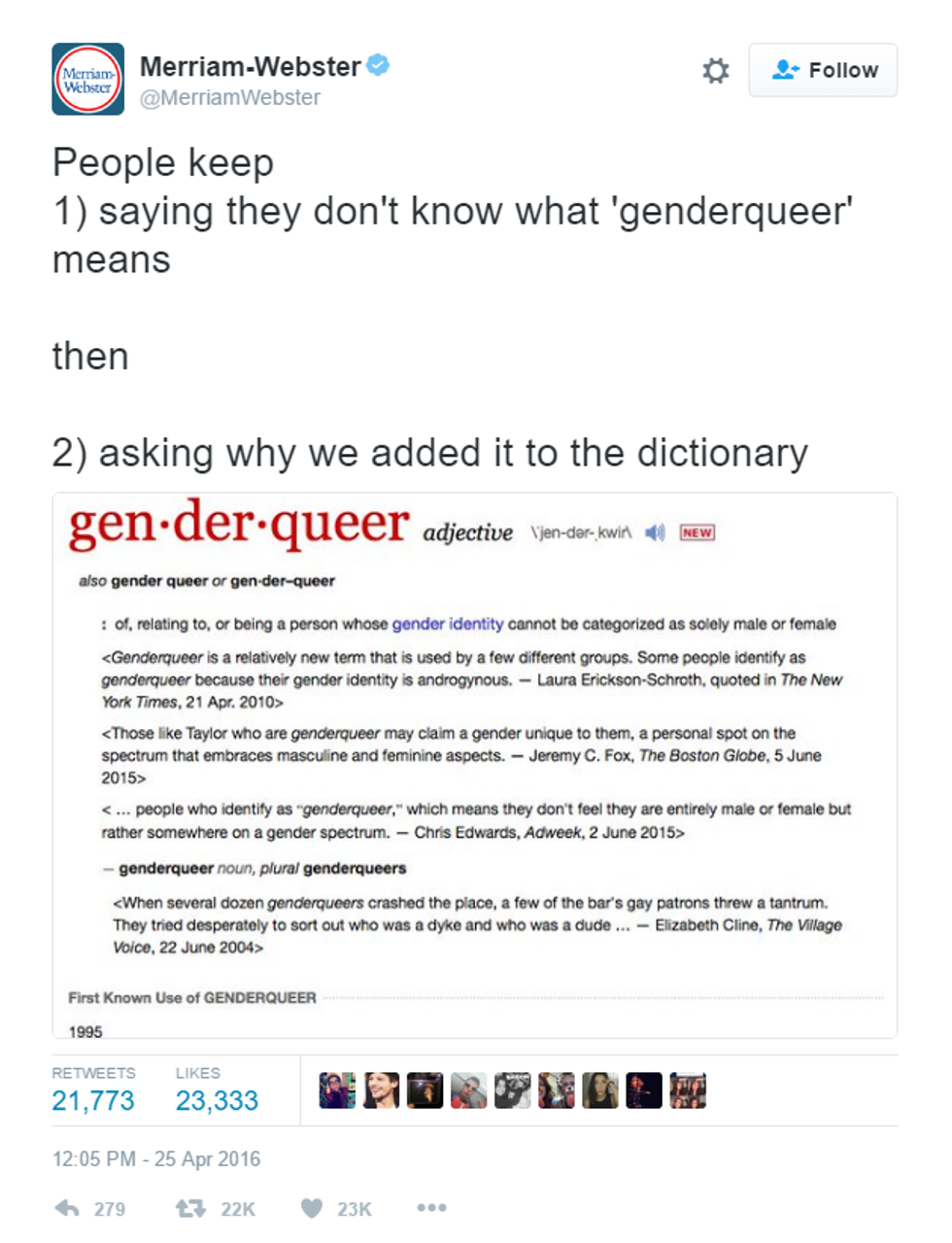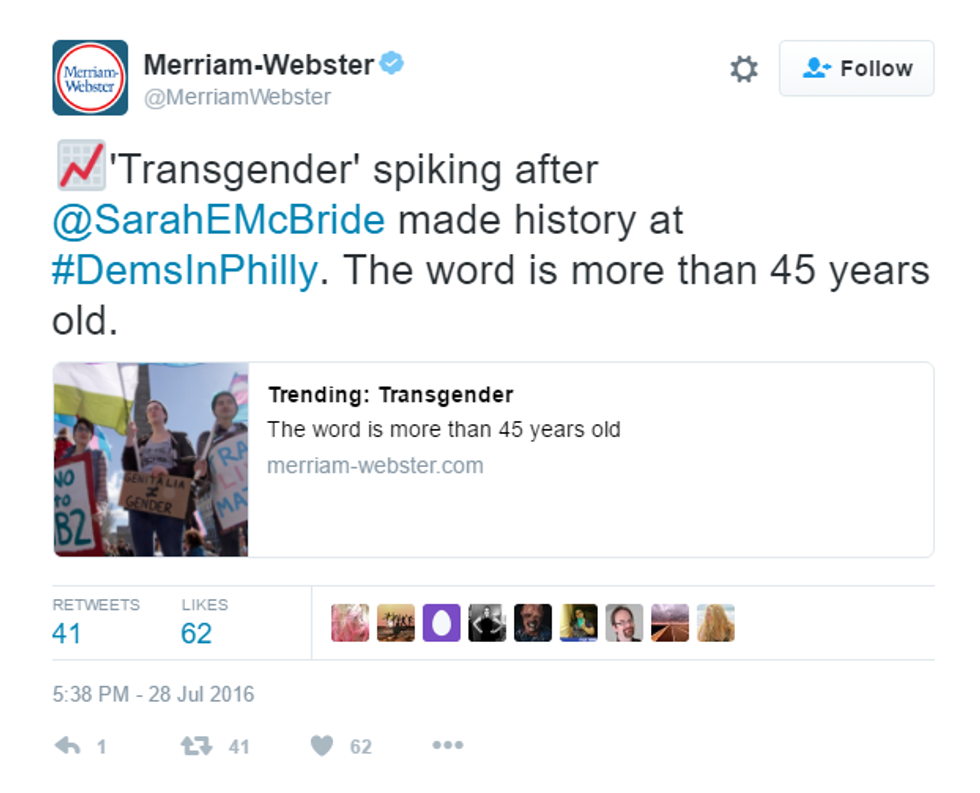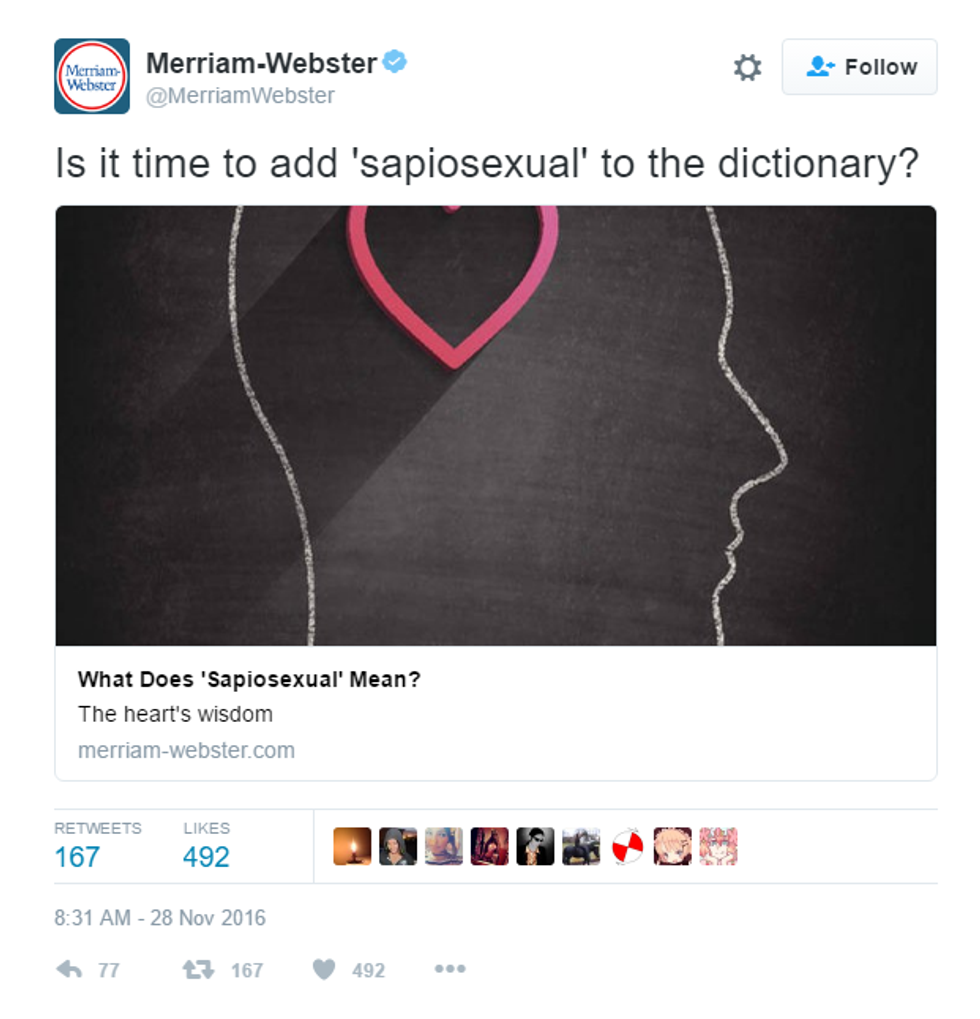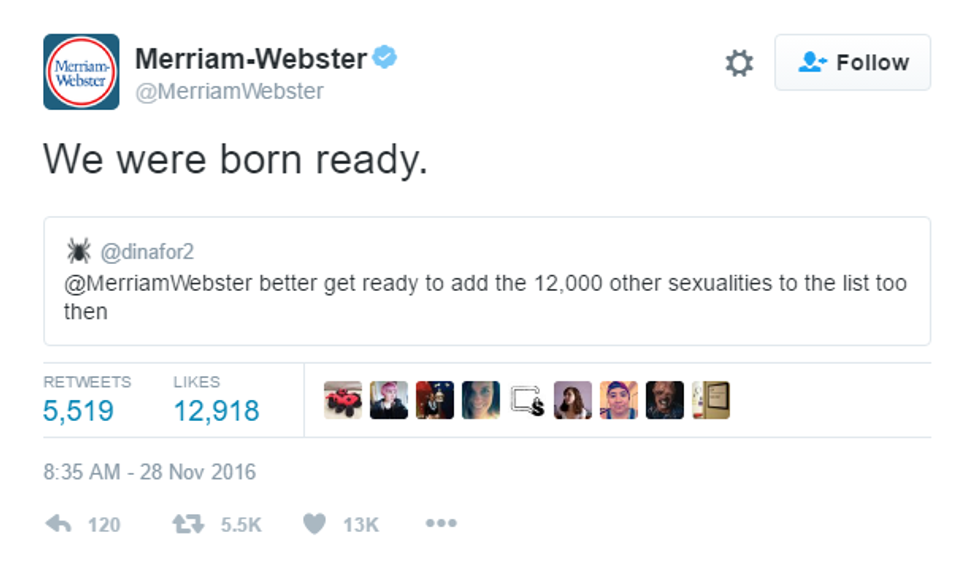As a Linguistics and Rhetoric major, my dream job is probably the most boring one imaginable. My dream job is what people use as an insult towards the most boring people alive. My dream job is a lexicographer. Yes, someone who writes, edits, and compiles dictionaries for a living. Sorry, dad.
I should clarify, there are other things I want to do in life. I want to be a professor, I want to be a mentor, I want to be an essayist, I want to be a freelance writer, I want to be an activist, I want to be a feminist and LGBT+ linguistic researcher. I want to do a lot of things, actually. But language is at the core of all of them. Nothing sparks my curiosity and determination more than the prospect of learning the history and socialization of any given speech community.
So, when Merriam-Webster set aside a little time this year to become a "hilarious, shade-throwing LGBTQ ally" as Huffington Post calls them, I was intrigued. Could lavender linguistics (the study of the language used by the LGBT+ communities) finally be making its way into mainstream lexicography? The rhetoric of the LGBT+ communities has always fascinated me and I know that pursuing research in the field is uncommon and fairly unprecedented, but seeing a company as massive as Merriam-Webster open up to its possibilities made me stop and say to myself "Maybe this is something I could do."
It all started back in April, when Merriam-Webster posted this incredible tweet:
It's a brilliant response to the hypocrisy of people who refuse to learn up-and-coming terminology, then proceed to ask why such words are being treated like actual vocabulary. It's also a simple statement by the dictionary that they are clearly and unabashedly on our side of history. It's just a really nice step in the right direction.
The next show of pride came in July, when Merriam-Webster reported on Twitter that "Transgender" had spiked in search popularity when Sarah McBride, a trans activist, became the first ever openly transgender person to speak at the Democratic National Convention. They concluded the tweet with the very classy declaration: "The word is more than 45 years old."
It may seem unimportant, but the LGBT+ community has to regularly fight off opponents who claim that our labels are new and juvenile, despite the fact that LGBT+ individuals have existed since time itself began. Merriam-Webster's cordial fact-checking is a meaningful display of solidarity.
Finally, last week, our new favorite dictionary tweeted an open-ended question: "Is it time to add 'sapiosexual' to the dictionary?" Now, if you're a member of the LGBT+ community, you know the answer to this ridiculous question is a resounding NO. But, the article attached clearly states that Merriam-Webster has no official plans to define this unnecessary word, rather it is on their list of "Words We're Watching" which "talks about words we are increasingly seeing in use but that have not yet met our criteria for entry."
The moment of intrigue came later, after a user responded sarcastically asking if the dictionary is "ready to add the 12,000 other sexualities to the list too then." This reply is clearly meant to poke fun at the LGBT+ community for having what some people have deemed 'too many' labels. However, Merriam-Webster responded with the calm, cool, and collected attitude they always keep regarding these types of trolls: "We were born ready."
Again, this implies that Merriam-Webster is not daunted by the vast and largely-unsung world of lavender linguistics, nor are they offended by it. Rather, proud and somewhat excited to take on the immense task of defining the words so many people depend on for validation and self-esteem.
I, for one, am delighted to see my passion for the LGBT+ speech community finally reaching somewhat of a widespread recognition. I'm thrilled to know that this can be a realistic and worthwhile career path for someone like me. And I'm grateful for the fact that the next generation of LGBT+ youth will grow up with the ability to learn and research the terminology they may need to know when discovering themselves.
In other words, I was born ready.























